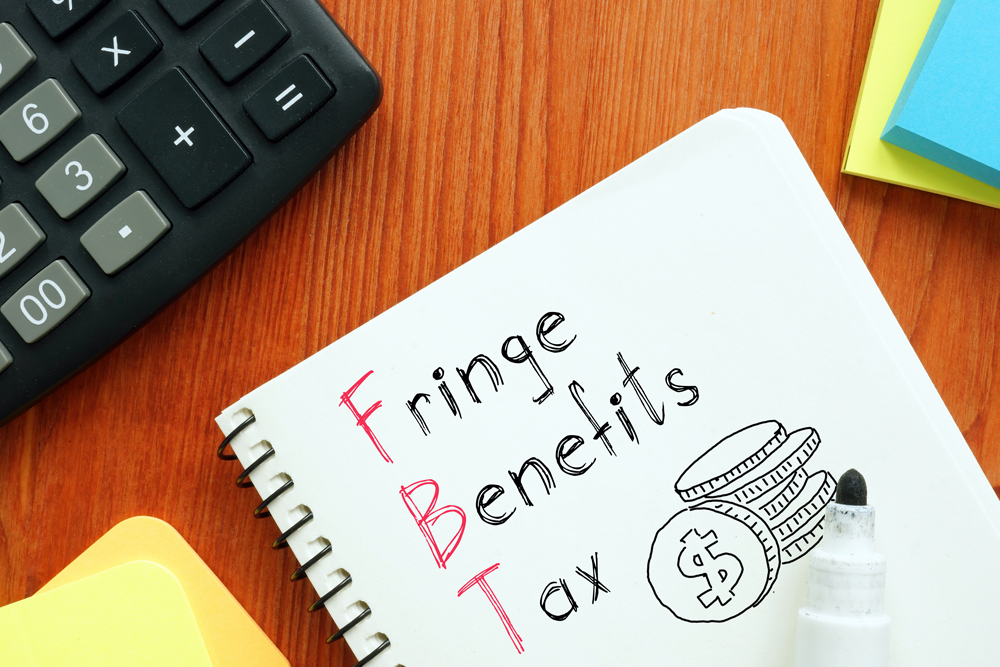Don't Invite The Tax Man to Your Christmas Party

With just four weeks until Christmas, we bet you’re already thinking about how you and your team are going to celebrate the silly season.
As a business owner, you might want to thank your employees and clients for a great 12 months by throwing a Christmas bash or buying a few well-thought gifts.
But whilst playing Santa is a great idea for boosting morale, it can have hidden tax implications.
Don’t get caught with an unforeseen tax bill this Christmas; follow our simple guide to Christmas parties, gifts and Australian tax law.
Is your workplace Christmas party liable for Fringe Benefit Tax?
While there is no express ‘entertainment fringe benefit’, a fringe benefit may arise from providing your employees and their connections with social and recreational activities such as Christmas parties, getaways and other social functions.
To determine whether providing your office Christmas party is considered entertainment, you need to look at the following factors.
Why are you supplying the food or drink for employees?

Providing your staff with food or drinks to help them get through the working day in comfort is not generally considered entertainment – think cold water on a hot day or pizza for dinner while you’re all working late to meet a tight deadline.
But if you provide food and drink in a social situation where the primary purpose of the event is for employees to enjoy themselves, then it is likely to be considered entertainment.
What type of food or drink are you providing?
Next, consider the type of refreshments you're providing. Are they inexpensive nibbles or home-made treats? Or are you paying for a meal at a nice restaurant, drinks at a trendy bar or a multi-course extravaganza?
If the food and drink you have planned are more elaborate than your regular meal, then it's likely to be considered entertainment.
When are you supplying food or drink?
If the food you’re providing is during work time, overtime, or while travelling for work, it is less likely to be entertainment because it’s for a work-related purpose rather than for enjoyment.
Where are you hosting the party?

Food or drink provided at a function room, hotel, theatre or restaurant is more likely to be entertainment than refreshments in-store or at the office.
It's also likely to be entertainment if the meal comes with music, dancing, a performance and other forms of amusement.
How much do the food and drink cost?
If the cost of putting on your celebration is more than $300 per person inclusive of GST, it doesn't fall under the minor benefits exemption, and you will need to pay FBT.
What is the minor benefits exemption?
An FBT exemption exists for fringe benefits, if they are infrequent, irregular and have a value of less than $300. However note the $300 amount is not a deductible amount and if exceeded FBT applies.
How to calculate your FBT entertainment liability
Under the FBT Act, you need to choose how you calculate your entertainment liability. Most business owners use either ‘actual method’ or the ‘50/50 method’.
Actual Method
Using this method, you split up the entertainment costs between employees (and their family) and non-employees.
What you spent on employees is tax-deductible and liable to FBT, while the amount you spent on non-employees is not liable to FBT, not tax-deductible and is not GST claimable.
50/50 Method
Rather than dividing up entertainment costs based on who attends your party, you can choose to use the more straightforward 50/50 method.
Under this method, regardless of where the party is or who attends, 50 per cent of the total cost is subject to FBT and a tax deduction/GST credit can be claimed (where applicable) for this component. FBT applies to the other 50 per cent.
But be careful not to fall into the following traps:
- Even if the function is on your premises, the food and drink you provide to your employees are not exempt from FBT.
- The minor benefit exemption cannot apply if using the 50/50 method.
Do gifts make better sense than a Christmas party?

The short answer is, yes! Instead of hosting a Christmas bash, consider giving your team non-entertainment gifts that cost less than $300.
Give your staff non-entertainment gifts under $300
Non-entertainment gifts under $300 are usually exempt from FBT. You can claim a tax deduction and GST credit as well.
Non-entertainment gifts include skincare and beauty products, flowers, wine, perfumes, gift vouchers and hampers. Avoid giving tickets to sporting events, cinemas and theatre productions, gym memberships or holiday experiences; these are all considered recreation or entertainment.
The $300 minor benefits exemption also separately applies to any gifts provided to associates meaning that a similar gift can go to a spouse or partner of the staff member with the same favourable tax outcome.
These favourable tax rules don’t apply to gifts to sole proprietors and partners in a partnership. After all, you can't be your own employee.
Don’t forget to claim a tax deduction for “non-entertainment gifts”, including gift vouchers and keep in mind Christmas gifts are considered separately to the Christmas party when determining whether the minor benefit exemption can apply.
Gifts over $300 per person are less tax effective
Providing more expensive gifts is less tax-effective. You can still claim a tax deduction and GST credit; however FBT is payable at the rate of 47 per cent on the grossed-up value on gifts valued at more than $300 including GST.
FBT doesn’t apply to gifts for clients and suppliers
Non-entertainment gifts given to clients and suppliers do not fall within the FBT rules because they are not staff. Generally, a tax deduction and GST credit can still be claimed provided the gifts aren’t overly valuable or excessive.
Well, what should I give my staff this holiday season?

The best tax outcome for your business is to give staff non-entertainment type gifts that cost less than $300 instead of hosting a Christmas party. These are tax deductible and no FBT is payable.
We suggest giving small but meaningful tokens of your appreciation, such as hampers, gift cards, wine, flowers or beauty products.
Gift cards are a great solution for larger teams. Don’t be tempted to give $300 gift cards, this is not less than $300 and isn't eligible for the minor benefit exemption. Try $250 (even $299) instead.
Tips for avoiding an unexpected Christmas tax bill
Christmas parties are often considered to be entertainment and are liable for FBT. This is primarily if they are held off-site, involve recreational and social activities and cost more than $300 per staff member. We note:
- Giving non-entertainment gifts that cost less than $300 per staff member is more tax effective than hosting a party.
- If issuing gift cards, don't be tempted to provide $300 vouchers, as this is not less than $300 and will not be eligible for the minor benefit exemption.
- Remember that Christmas gifts are considered separately to the Christmas party when determining whether the minor benefit exemption can apply.
For more information about Fringe Benefit Tax and how it affects your business, telephone MGR Accountants on 03 5443 8888 or email at mgr@mgr.com.au.
Disclaimer: Remember, this information is general and shouldn't be your sole source of FBT and tax information. Please talk to an experienced tax agent as each business's circumstances may vary





